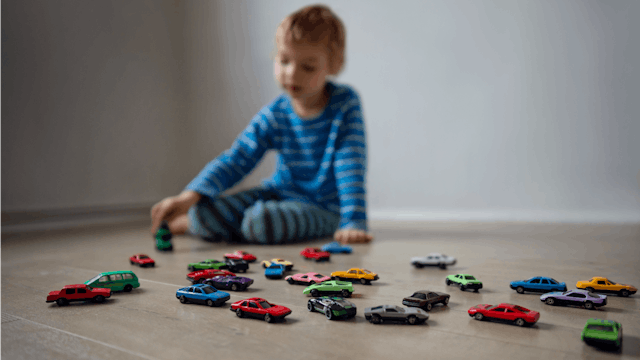What It's Like When Your Child Doesn't Speak

Maybe he would not.
Perhaps he could not.
There are many conflicting opinions on this matter, even now, but the fact was that he did not speak.
At the age of one, he was considered completely “normal.” At the age of two, he was categorized a “late bloomer.” I despised this term. Who is it that determines at which age a child “blooms?” Who’s to say he hasn’t?
At two and a half, the other children were full of words that made their parents proud. These word-counting parents would often have pre-arranged meetings to compare notes (and by notes, I mean children). Through all this, one boy would remain silent.
“Ten Words!” Word-Counter #1 would boast. “Five words,” Word-Counter #2 would whisper. An awkward silence would ensue as both parents turned back to the playground, watching. Within moments Word-Counter #1’s little girl is screaming and running towards her. The ten words that her mother is so proud of seem to be eluding her at the moment, because the tantrum escalates and they rush off to the car while the other mom’s mood brightens considerably.
I look down and see the boy. He is staring up at me with his beautiful brown eyes patiently waiting for my attention. He rewards me with a smile once he has it. His gaze shifts to the bag I am holding.
“Are you ready to go now?” Silence. A small brow furrows, but the eyes don’t move.
“Are you hungry?” No reaction.
“Do you want a drink?” This is the answer.
He tugs on the side of the bag and makes a small incoherent sound under his breath. Success.
He sits down on the bench beside me and sips his juice slowly while watching the other children play. Two older boys have taken up residence on a suspended metal bridge. They both hop onto the railings to let a little girl cross. She walks slowly towards the middle of the bridge. The two boys jump down and stomp on either side as hard as they can and the girl starts to cry. I look over as I feel the little body beside me stiffen and I hear the juice box drop to the ground.
He slams his hands over his ears and scrunches his eyes close. His face is contorted as if the sound has caused him physical pain. Small terrified sounds start coming, but they sound like the whimper of a baby who can’t quite turn them into words. The parents of the young tyrants are still ignoring their children, but do take time out of their important conversation to look over at us with disgust. Their children may be mean, but at least they’re “normal.”
It’s bedtime now, and the boy is calm once more. The house is silent and he is heavy in my arms as I carry him to bed. He stares up at me with wide eyes but does not make a sound as I place him in his bed. I sit down in the kitchen and the boy begins to murmur. I press the baby monitor to my ear and within the static and the hum of the monitor I hear the sounds I long for. The indiscernible sounds that, from here, sound so much like words being whispered into the darkness. He does this every night, but only when he thinks he’s alone.
I wake the next morning to the sound of a low growl at my bedside. This is how he tells me I have over slept. “Go play, I’ll be up soon,” I say, and I hear the soft patter of little feet moving down the hall to the living room followed by a thud as one little bum hits the living room floor and a wooden train clacks down the tracks of the train set. I immediately fall back into a deep sleep. I awaken the second time that morning to a small cold hand in my own. The boy grips my hand and pulls with all his might.
“Just a minute,” I mutter as I try to get my bearings. There’s no way of knowing when he woke up, since he never makes a sound. The hand drops mine once he sees that I am indeed going to join him today, and the pattering little feet make their way back down the hall. This time I hear a hiss of cold air followed by a slow creak. The fridge. I roll over and stretch. Just as I am about to get up out of bed, I hear a loud thud, crack. I bolt out of bed. I know what’s coming next and the screams start before I can make it the ten steps to the kitchen.
The boy is standing with his arms out shaking violently. His hands and fingers are still perfectly curled as if they hadn’t let go, but on the floor beneath him lay a carton with twelve cracked eggs, seeping onto the cold linoleum. The boy is frantic. He is paralyzed with fear and cannot move his frail little body. His eyes plead for forgiveness, and I scoop him up and hold his small shaking frame against me willing every little bit of love, strength and courage I have into that tiny body, and finally it stops trembling.
“It’s okay,” I whisper softly. “You’re safe.”
The doctors keep coming and the therapists keep calling. I chauffeur him from one cold sterile room to the next. They have many names for the boy’s “condition,” but only he and I know the truth. There are no words for what happened to us. Speaking his truth would be our ruination.